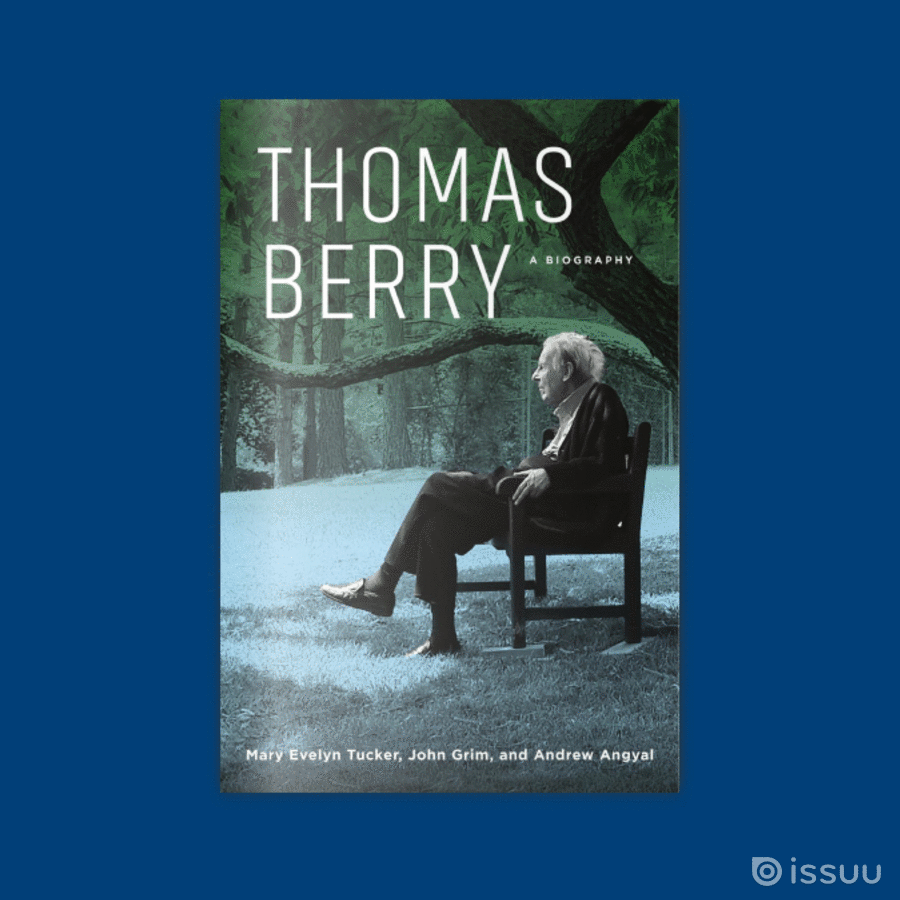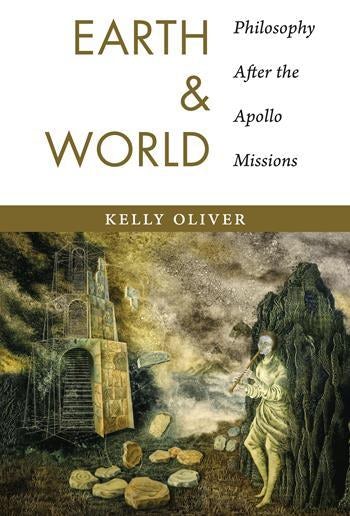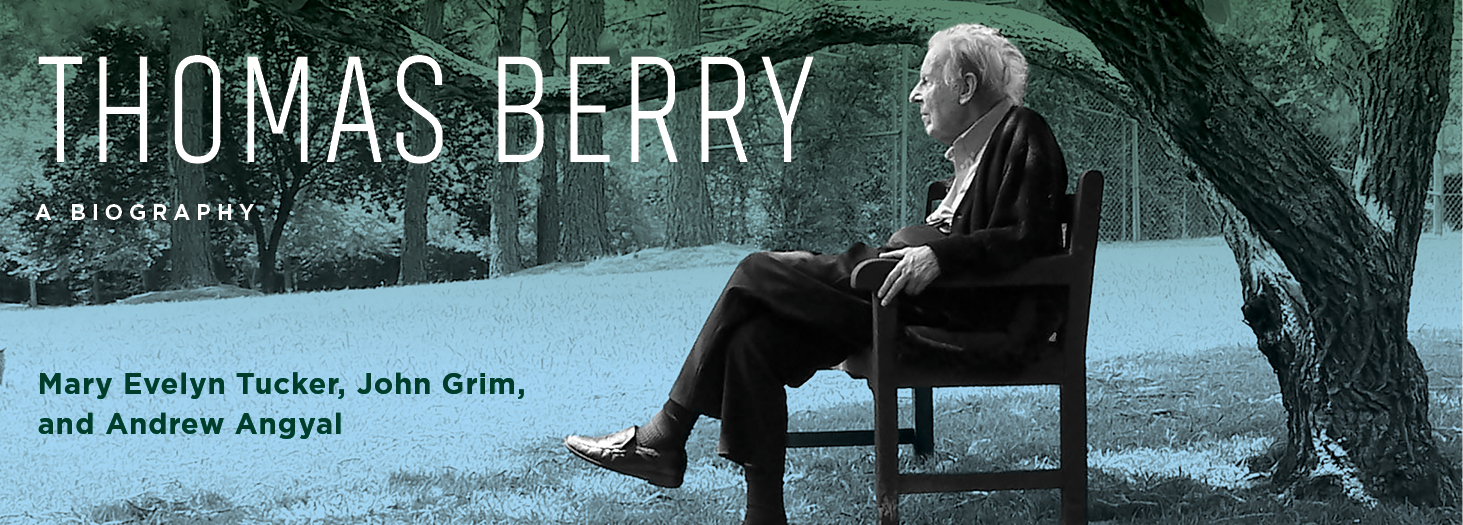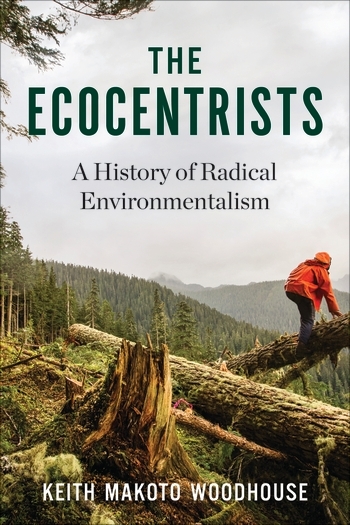Q&A: Mary Evelyn Tucker and John Grim on Thomas Berry: A Biography

“A warm celebration of an environmentalist whose ideas are increasingly relevant.”
~ Kirkus Reviews
Thomas Berry (1914–2009) was one of the twentieth century’s most prescient and profound thinkers. The first biography of Berry, this book illuminates his remarkable vision and its continuing relevance for achieving transformative social change and environmental renewal. In continuation of our month-long Earth Day celebration, today we have an exclusive interview with authors Mary Evelyn Tucker and John Grim who teach at the Yale School of Forestry and Environmental Studies and the Yale Divinity School, where they direct the Yale Forum on Religion and Ecology.
Enter our drawing for a chance to win a copy of Thomas Berry: A Biography.
• • • • • •
Q: Tell us about Thomas Berry—the man. What inspired him to become involved in environmental and social challenges?
Mary Evelyn Tucker and John Grim: Berry was primarily a cultural historian. He was someone who lived through the 20th century – from horse and buggy, to the first automobiles and street cars, to seeing a man land on the moon. From telegraphs to television, from computers to cell phones, Berry grew with the times. His students bought him his first computer when he was 70. He witnessed these technological changes along with rapid population growth – from two billion people in 1927 to nearly seven billion when he died in 2009. All of this moved him to respond to the pressing environmental and social challenges that began to emerge as well. He entered a religious order so that he could contemplate the issues he observed at an early age.
Q: Thomas Berry was a global man. Can you tell us about the places he lived?
MET & JG: Born in North Carolina in 1914, Berry eventually moved out of the south to college in Maryland and graduate school in D.C. He traveled to China in 1948 to study Chinese religions and culture before most universities even had courses on China. He also spent several years in post-war Germany witnessing the recovery from the destruction of the war. He eventually settled in New York where he taught Asian religions at Seton Hall, then St. John’s, and finally Fordham University. He offered courses at Columbia as well. These included classes on Contemporary Spirituality and on American Indian Religions, all of which were well attended.
Q: How did you come to know Thomas Berry?
MET & JG: We met Berry in graduate school at Fordham where we had both come to study with him in the History of Religions program that he created there. John finished his PhD at Fordham in Native American religions with Thomas, and Mary Evelyn completed her graduate work in Asian religions with Ted de Bary at Columbia. Thomas married us in 1978. From that time on we worked closely with Berry for over thirty years as colleagues and editors of his books.
Q: What were the challenges in writing the first biography about Thomas Berry?
MET & JG: Thomas Berry’s biography was challenging to write for many reasons. His life was so rich and so long—he died ten years ago at 94. He had a wide range of fields of study and teaching—from the world’s religions to ecology and evolution. His home and library in Riverdale, N.Y. held some 10,000 books. Indeed, his erudition was widely appreciated, especially by his friend and colleague Wm. Theodore de Bary, the noted Asian scholar at Columbia. They shared a life-long friendship having met on the boat to China in 1948. How to capture some of Berry’s intellectual brilliance and his effort to bring that knowledge toward a larger common good for the Earth community was not an easy task.
Q: How long did it take you to write this biography?
MET & JG: It was some two decades ago that we began thinking about this book. Even while Thomas Berry was alive, we began to discuss what he hoped for in his biography. He kept saying, “Tell my story in the context of the times.” This was a large request.
Moreover, we had teaching responsibilities at Yale and were directing the Forum on Religion and Ecology there. In addition, we had several writing commitments to complete as we were shaping the biography. Thus, while we had been preparing chapters, it was during the last five years that we concentrated on the writing. We spent time doing research at Harvard where the Thomas Berry Archives are located. Pouring through his papers and letters was a unique experience that expanded our appreciation of his remarkable life and work.
Q: What did you learn about Thomas Berry in writing this biography?
MET & JG: We knew some dimensions of the struggles he faced in finding his way forward both in teaching world religions and later in speaking about the environmental crisis. As a visionary before his times, he was often not well understood until his later years. Yet, his warm personality, his deep compassion, and his penetrating mind held him steady for his life journey. This came into greater visibility as we wrote. Berry navigated difficulties with grace and humor, all while inspiring so many to work toward the changes needed for the flourishing of the Earth community.





